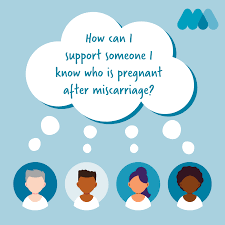TW – Miscarriage
Whatever the circumstances, miscarriage is utterly heart-breaking. No matter how far into pregnancy, whether the baby is much longed for or a complete surprise, a loss is still a loss. Current research estimates approximately one in four pregnancies end in miscarriage. When a friend or loved one experiences this kind of tragedy, you may feel you don’t know what to say or do. I know you’ll want to reduce their suffering and be as helpful as possible, so here’s how to support someone who’s had a miscarriage…
What NOT to Say
When someone has had a miscarriage, avoid comments that begin with the words ‘at least’. Things like ‘at least you know you can get pregnant’ or ‘at least you have a child already’. Well-meaning comments like these can be difficult to hear, especially in the early days when someone’s grief is particularly raw. They can even cause more pain. Although meant to be reassuring, phrases like ‘everything happens for a reason’ or ‘God must have needed another angel’ can also do more than harm than good.
If you’ve already used some of the comments and phrases described above, don’t worry. Acknowledge what you’ve said may have landed differently than intended and focus on supporting your friend as they continue to grieve. Try saying things like, ‘I’m so sorry for the loss of your baby’, ‘I am here for you as little or as much as you need me’, ‘it wasn’t your fault’ and ‘let me know how I can support you’.
Remember Everyone Deals with Loss Differently
Everyone deals with grief in different ways. Rather than assuming you know what a person needs, ask them. Explain you want to respect their wishes. Would they like you to check in on them? Would they appreciate some company, or do they want to be alone? Do they want to share their feelings and experiences, or would they prefer to avoid the subject completely? Keep asking these questions and respond accordingly. Your friend’s needs may change as their grief progresses.
Offer Practical Support
Following a miscarriage, your friend or loved one may be in pain, both emotionally and physically. Providing practical support will give them time and space to heal. Rather than general help, be specific with your offer so they don’t have to figure out what they need. Things like bringing over a hot meal, taking older kids out for an hour or two, cleaning the house or grabbing some shopping are a good place to start. Not having to worry about these things will allow your friend to rest, recover and acknowledge what they’re going through.
Some people find it hard to accept offers of help. In certain situations, if you know someone well enough, the most supportive thing you can do is just turn up and start helping. Let them know you’ll leave as soon as they want you to, but until then, you’ll be working hard to lighten their load.
